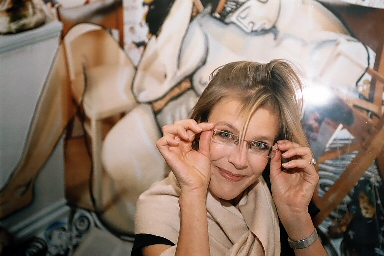 Like any good middle-class child I played the piano growing up. I hated practicing, but was only allowed to stop after my teacher hanged herself (no, not my doing). I then took classical singing, slogged my way through the Belcanto arias and Cherubino, but fell in love with the genre of opera after seeing Peter Seller’s productions of Mozart’s Marriage of Figaro to kick me into gear: wow, opera can really mean something to today’s audience! It doesn’t just live in a museum! That was years before I encountered the vital director’s theatre of Opera houses in Germany, in the US lovingly called “Euro Trash”, and yes, I was young.
Like any good middle-class child I played the piano growing up. I hated practicing, but was only allowed to stop after my teacher hanged herself (no, not my doing). I then took classical singing, slogged my way through the Belcanto arias and Cherubino, but fell in love with the genre of opera after seeing Peter Seller’s productions of Mozart’s Marriage of Figaro to kick me into gear: wow, opera can really mean something to today’s audience! It doesn’t just live in a museum! That was years before I encountered the vital director’s theatre of Opera houses in Germany, in the US lovingly called “Euro Trash”, and yes, I was young.
I started a fairly academic career with Philosophy, Musicology and English/American Lit at the University of Berne, Switzerland, interned a bit at the local theatre and became quite knowledgeable with their copier. Out of the blue a young director needed an assistant for a production of Gluck’s Paride ed Elena, one of the three so-called reform operas, and arguably one of the more tedious ones. However, I loved it. Loved working with singers, loved searching for props, loved spending all night in lighting rehearsals. Then, one day, the director said that he had no bloody idea of what to do with that one aria in the middle of Act 5: the two lovers are stranded, and a vengeful goddess appears, sings an aria of death and destruction and then goes off again. “Why don’t you do it!” he said, throwing the book at me. I was startled but didn’t refuse. That night in bed I pored over the score and suddenly found that I actually DID have an idea on how to stage this aria! The next day, my notes in hand, I rehearsed with the goddess first, and had my second revelation. Not only did my ideas make sense, I was able to communicate them, the singer understood what I wanted and flew with it. After years of warring between my intellectual talents and my creative urges, suddenly the puzzle pieces came together, and my life made sense: “THIS is what I’m meant to do, THIS is what I do best, THIS is where my varying talents don’t fight one another but are in synch!”
It’s the director who needs to be able to think conceptually, analyse and have the overall view, but then be able to communicate it all to other creative human beings, get them to want the same thing, and hopefully excite them on the production’s behalf. Never mind that it’s the funky creative part that then has to be able to throw everything over board, if the big thinking falls to pieces.
Well, that’s how I fell in love with what I do, and I haven’t fallen out of it yet.






